For my current research project, I am interested in what constitutes "civic data" -- i.e. data that can be used to turn issues related to environmental justice, public health and economy into problems of public concern. The visuals below narrow down on two a particular dimension civic data: what makes civic data actionable and where do you keep it?
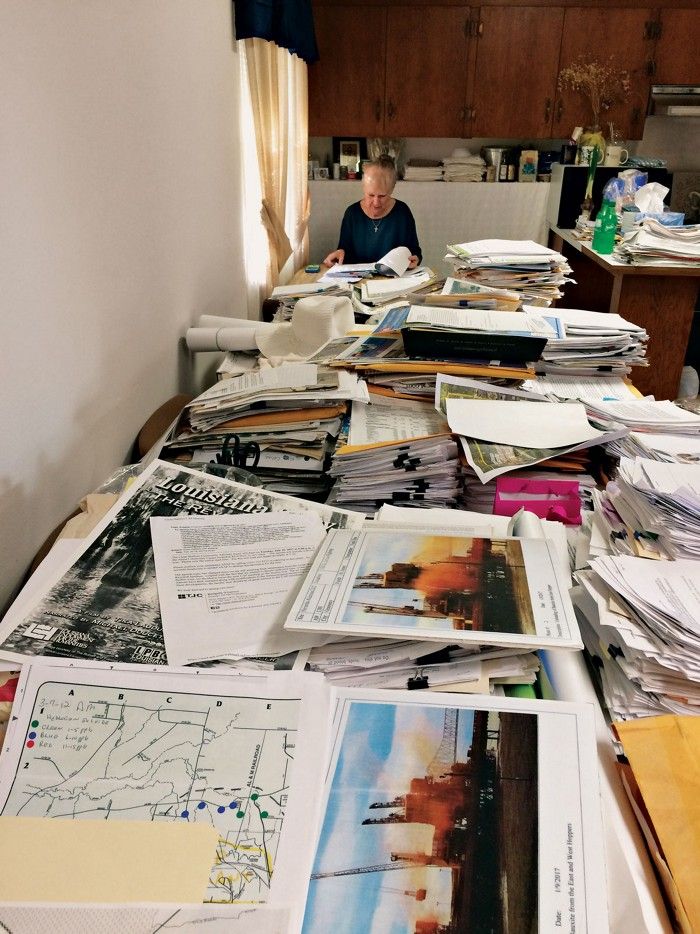
Fig. 1 This is a photo of Wilma Subra, in her "office" in New Iberia, Louisiana, taken by journalist Rick Mullins for an interview. Subra, a trained microbiologist and chemist is among the most prominent figures in the struggle against petrochemical companies in the United States. After working as a leading consultant for the EPA, she eventually focused her energy on supporting NGOs and other community organizations. Though she has worked on cases of industrial pollution across the U.S. – recognized with a MacArthur Genius award – she is particularly well-known for her work in Louisiana's Cancer Alley. Currently, she serves as LEAN’s technical director and is playing a lead role in the effort to stop Formosa Plastics' expansion in the region. In an article and interview for Chemical and Engineering News, Mullin (2020) notes the printed "emission data and regulatory filings" that line Subra’s kitchen table, which also serves as her office. Officially registered as the “Subra Company”, her work began with a small set of employees but has now turned into a "one-woman shop" (Mullin 2020).
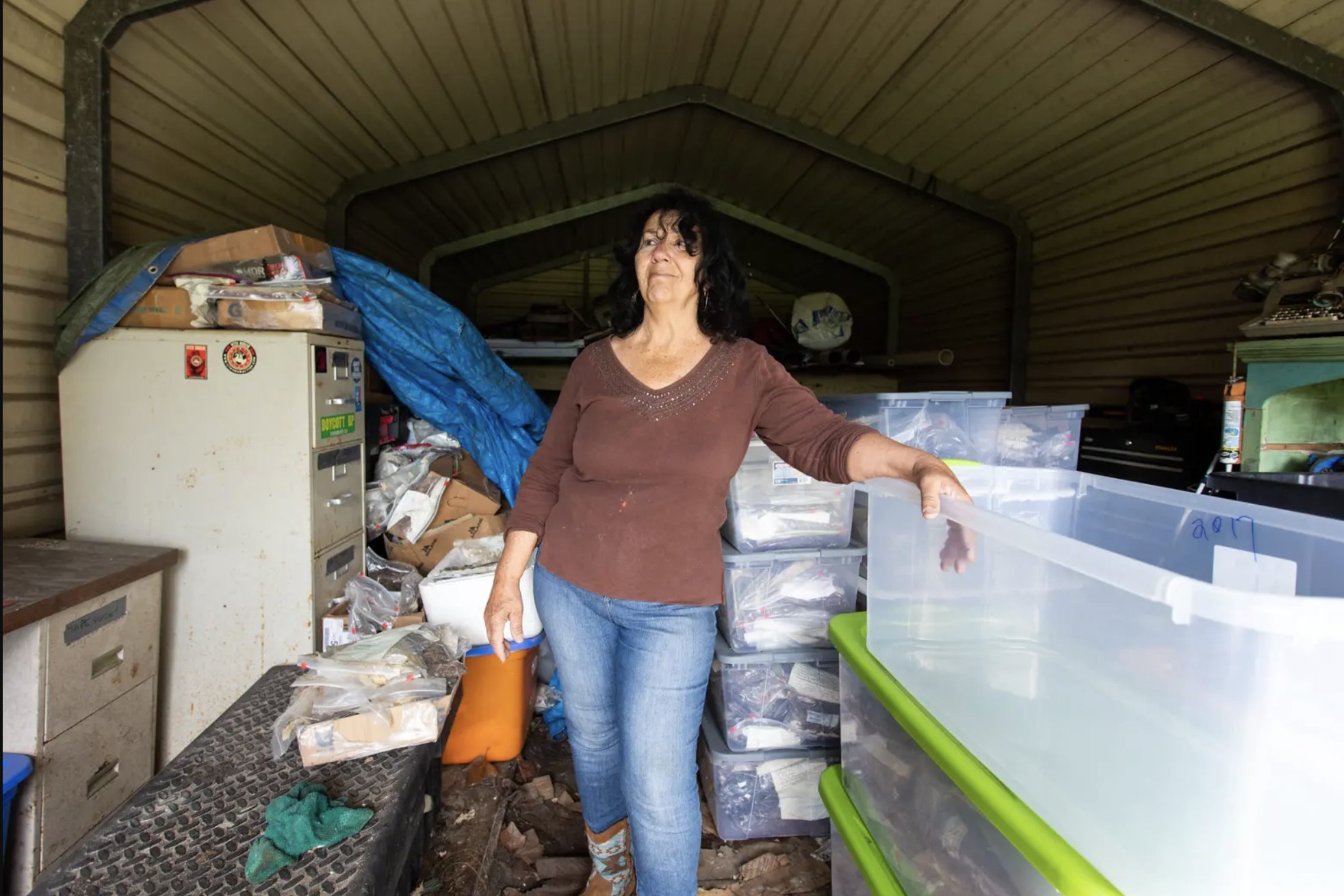
Fig. 2 A photo of Diane Wilson, taken by Emree Weaver for the Texas Tribune (2019). Wilson is another well-known activist fighting Formosa in Port Lavaca, Texas. And like Wilma Subra, her work raises the questions of Anthropocene archiving. Originally a shrimp fisherwoman, Wilson has been going on weekly boat trips to collect nurdles around the Formosa facility. While she donates a part of them to the civic science initiative NurdlePatrol, she keeps most of the material in her barn. (together with other documents she has collected).
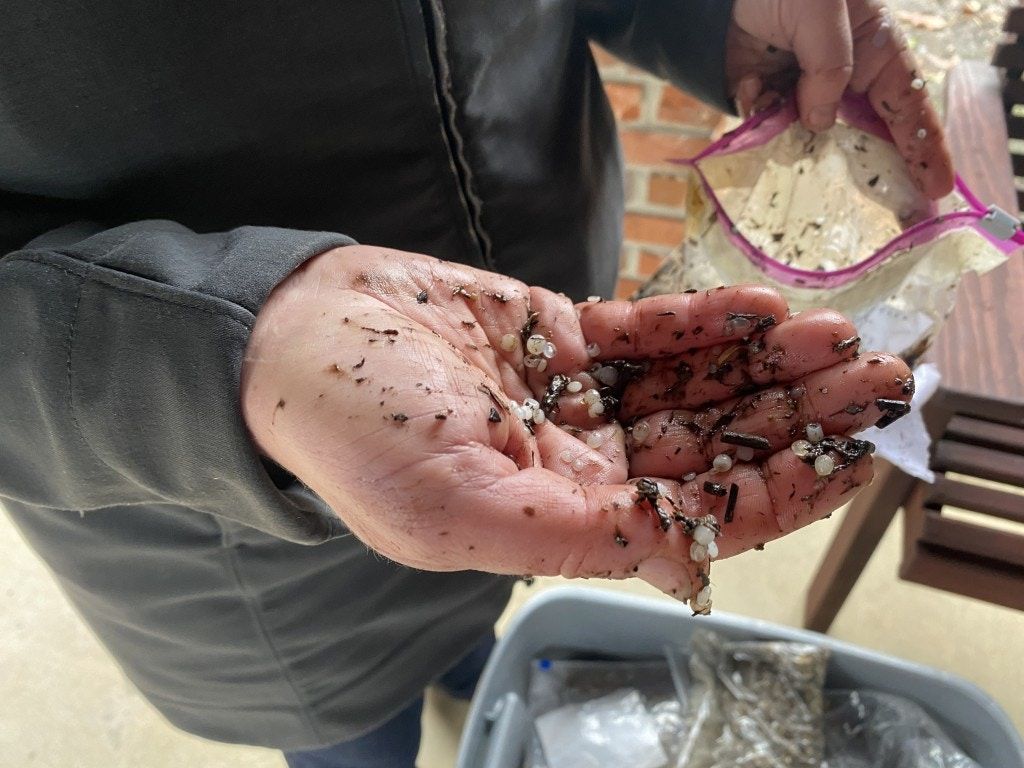
Fig. 3 This is a close-up shot of plastic pellets collected by activists in Louisiana. Though my research is about civic data in a broad sense (with plastic pollution as one domain), the pellets are a reminder of "rogue data" that cannot be easily archived -- at least in digital space. The nurdles also beg another question that goes beyond archiving and storage: what makes data actionable? In late 2019, the pellets were key evidence for Diane Wilson and supporters to win a historic $50 million environmental lawsuit in Texas. At the same time, activists in Louisiana, activists used the plastic pieces for a symbolic, nonviolent form of protest, dropping them in front of the door of an oil and gas lobbyist. Six months later, the activists were charged with felonies for terrorism.
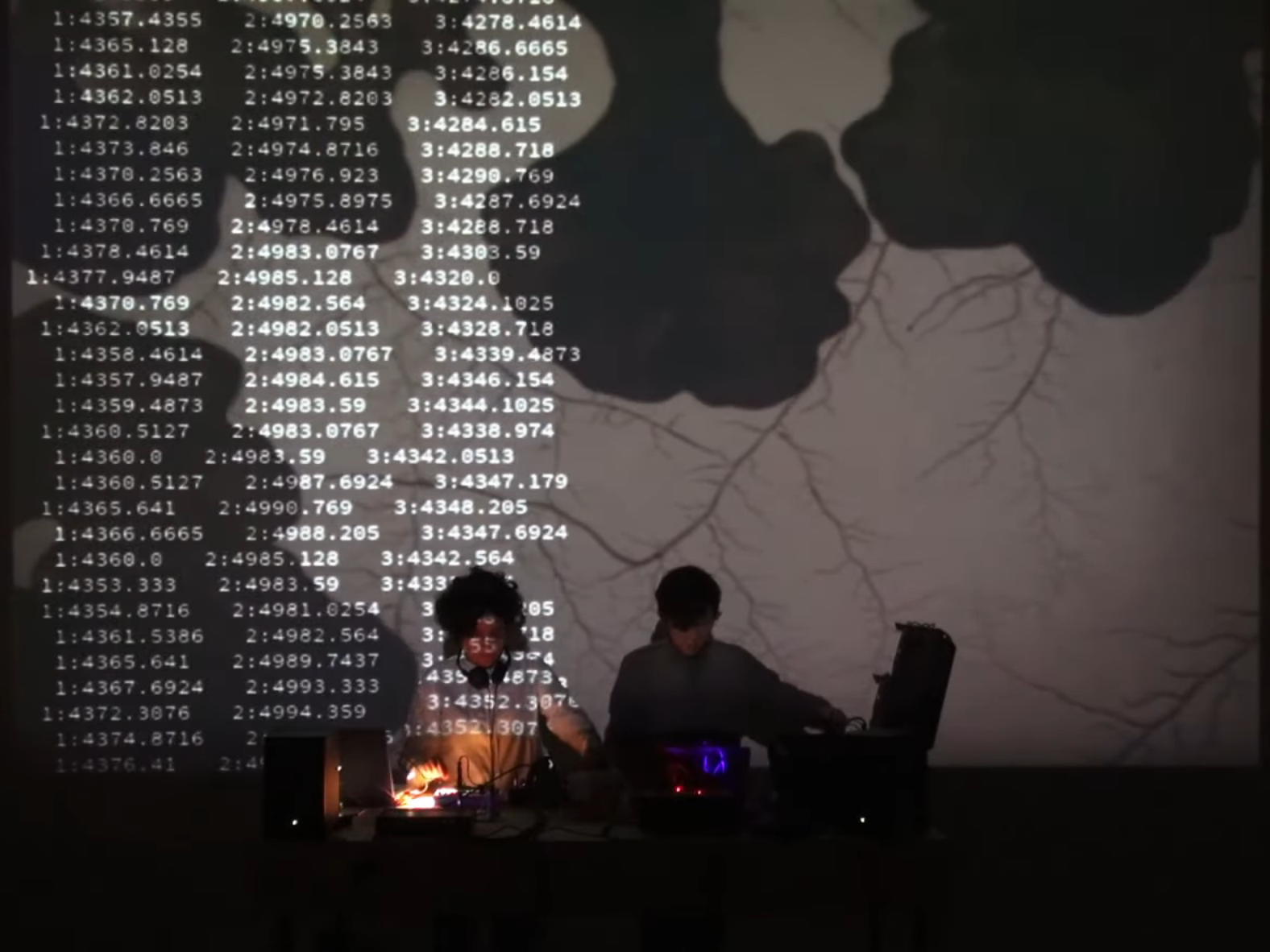
Interspecifics multi-species collective, using their open, DIY "ontological machines" to play sounds produced by fungi and bacteria
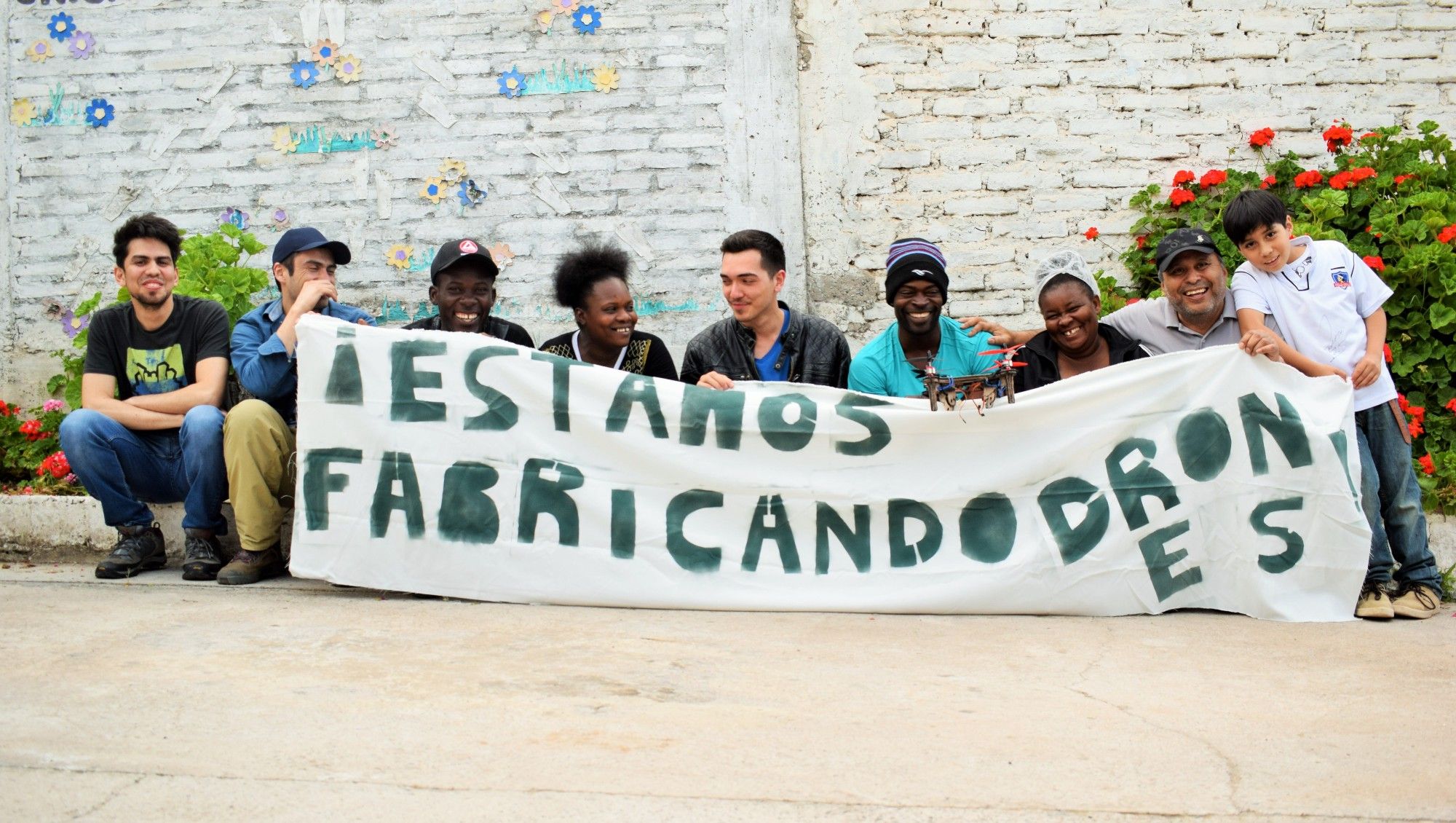
Members of Vuela project showing a flag that reads "we are fabricating drones
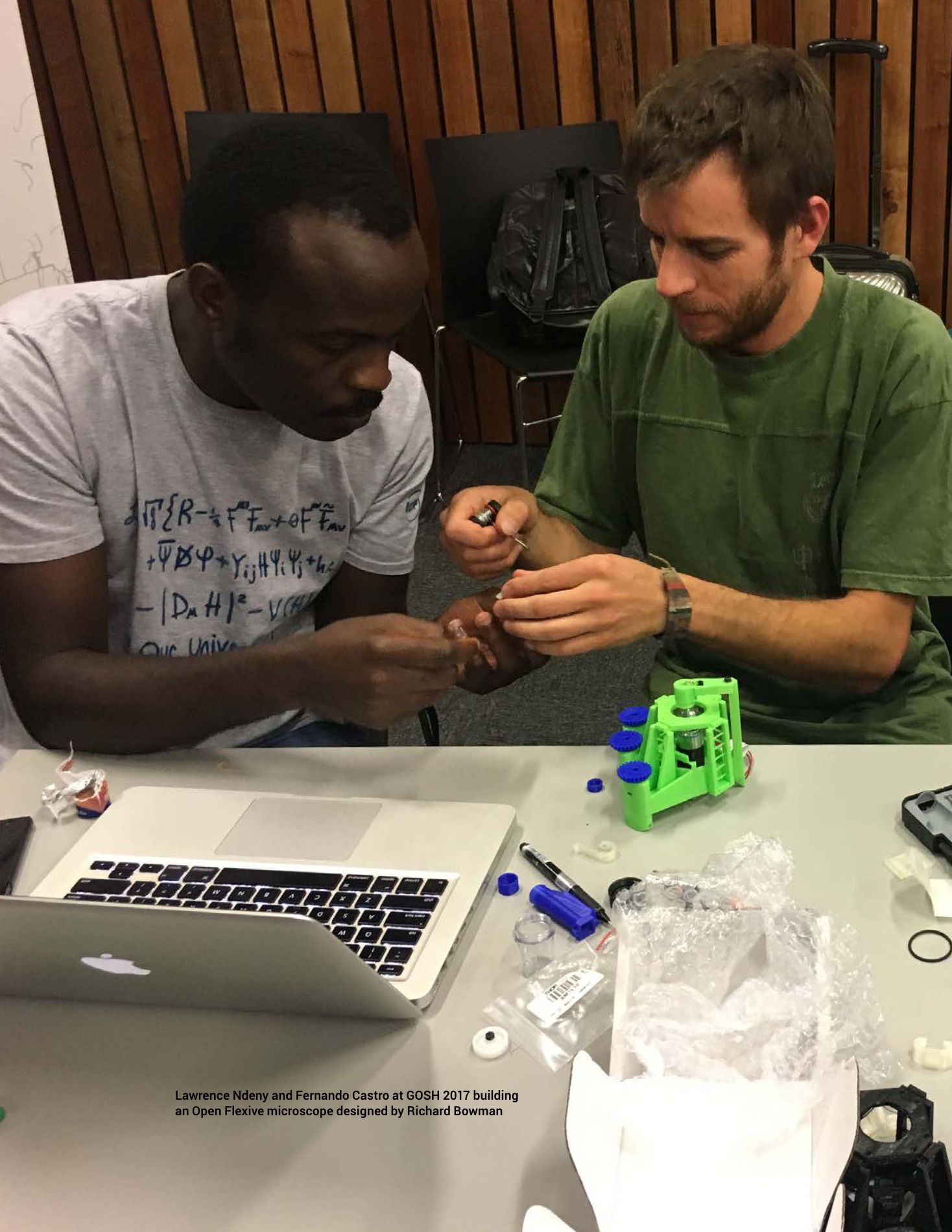
Participants of GOSH 2017 building Open Flexure, an open hardware microscope
These images are posted on behalf of Julieta Arancio.
 Getir (Turkish for Bring!) is a grocery delivery company operating in Turkey. These couriers, once thought "unskilled, uneducated, etc." now became "essential". The spectacle is thus; these brave people risk their lives, delivering necessities to your door, so you can stay healthy, inside your house. Getir did a lot of hiring when the first wave of quarantines occured in Turkey, many of those workers are now unemployed as lfie became "normal" once again. What is "essential" in these workers are that they are essentially sacrifices, for even a greater spectacle than their heriosm; the economy. They are forcefuly made martyrs, as living check to check forces them upon these jobs, yet asking for safer conditions means they are simply replaced. Their lives and labour are the very spectacular tools that are used to first make them killable and then execute them.
Getir (Turkish for Bring!) is a grocery delivery company operating in Turkey. These couriers, once thought "unskilled, uneducated, etc." now became "essential". The spectacle is thus; these brave people risk their lives, delivering necessities to your door, so you can stay healthy, inside your house. Getir did a lot of hiring when the first wave of quarantines occured in Turkey, many of those workers are now unemployed as lfie became "normal" once again. What is "essential" in these workers are that they are essentially sacrifices, for even a greater spectacle than their heriosm; the economy. They are forcefuly made martyrs, as living check to check forces them upon these jobs, yet asking for safer conditions means they are simply replaced. Their lives and labour are the very spectacular tools that are used to first make them killable and then execute them.

A 52 yo nurse, beaten by cops in France, for protesting for better woking conditions.
The healtcare workers, too are spectacular killables; presented as heroes to be clapped from balconies, but quite literally unwilling martyrs made to march happily into their doom. What happens if one asks for better conditions in ones sacrifice? The regulatory tools of the sovereign functions.
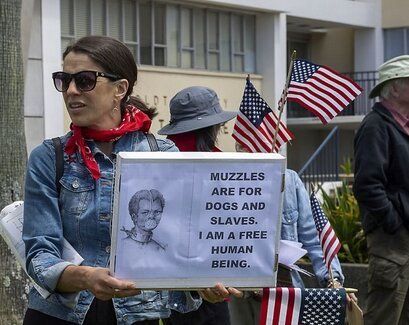
One part of the general discourse that we have already forgotten about is the eco-fascism that rose to prominence once again, not only in the anti-lockdown protests globally but also in seemingly much more harmless discourse on earthy survival. The "world is healing", "humans are the virus" and "the masks are muzzles" discourses differ only in appearance. Their roots can be traced to that old Mathusian notion of the nobleman, having to "live and let die" the savage that knows not of "earthy survival/preservation". Understood in this sense, and related back to Mbembe's necropolitics, the Covid Pandemic becomes the perfect time to discuss for instance, how "Black Deaths Matter" and dealt/administered.
![]() www.stsinfrastructures.org/system/files/vuela_0.jpeg">http://www.stsinfrastructures.org/system/files/vuela_0.jpeg" type="image/jpeg; length=561584">Members of Vuela project showing a flag that reads "we are fabricating drones"
www.stsinfrastructures.org/system/files/vuela_0.jpeg">http://www.stsinfrastructures.org/system/files/vuela_0.jpeg" type="image/jpeg; length=561584">Members of Vuela project showing a flag that reads "we are fabricating drones"
![]() www.stsinfrastructures.org/system/files/vuela_0.jpeg">http://www.stsinfrastructures.org/system/files/vuela_0.jpeg" type="image/jpeg; length=561584">vuela.jpeg
www.stsinfrastructures.org/system/files/vuela_0.jpeg">http://www.stsinfrastructures.org/system/files/vuela_0.jpeg" type="image/jpeg; length=561584">vuela.jpeg
![]() www.stsinfrastructures.org/system/files/vuela_0.jpeg">http://www.stsinfrastructures.org/system/files/vuela_0.jpeg" type="image/jpeg; length=561584">vuela.jpeg
www.stsinfrastructures.org/system/files/vuela_0.jpeg">http://www.stsinfrastructures.org/system/files/vuela_0.jpeg" type="image/jpeg; length=561584">vuela.jpeg
![]() www.stsinfrastructures.org/system/files/vuela_0.jpeg">http://www.stsinfrastructures.org/system/files/vuela_0.jpeg" type="image/jpeg; length=561584">Members of GOSH 2017 building Open Flexure, an open hardware microscope
www.stsinfrastructures.org/system/files/vuela_0.jpeg">http://www.stsinfrastructures.org/system/files/vuela_0.jpeg" type="image/jpeg; length=561584">Members of GOSH 2017 building Open Flexure, an open hardware microscope
![]() www.stsinfrastructures.org/system/files/vuela_0.jpeg">http://www.stsinfrastructures.org/system/files/vuela_0.jpeg" type="image/jpeg; length=561584">vuela.jpeg
www.stsinfrastructures.org/system/files/vuela_0.jpeg">http://www.stsinfrastructures.org/system/files/vuela_0.jpeg" type="image/jpeg; length=561584">vuela.jpeg
![]() www.stsinfrastructures.org/system/files/vuela_0.jpeg">http://www.stsinfrastructures.org/system/files/vuela_0.jpeg" type="image/jpeg; length=561584">vuela.jpeg
www.stsinfrastructures.org/system/files/vuela_0.jpeg">http://www.stsinfrastructures.org/system/files/vuela_0.jpeg" type="image/jpeg; length=561584">vuela.jpeg
![]() www.stsinfrastructures.org/system/files/vuela_0.jpeg">http://www.stsinfrastructures.org/system/files/vuela_0.jpeg" type="image/jpeg; length=561584">vuela.jpeg
www.stsinfrastructures.org/system/files/vuela_0.jpeg">http://www.stsinfrastructures.org/system/files/vuela_0.jpeg" type="image/jpeg; length=561584">vuela.jpeg
![]() www.stsinfrastructures.org/system/files/vuela_0.jpeg">http://www.stsinfrastructures.org/system/files/vuela_0.jpeg" type="image/jpeg; length=561584">Interspecifics multi-species collective, using their open, DIY "ontological machines" to play sounds produced by fungi and bacteria
www.stsinfrastructures.org/system/files/vuela_0.jpeg">http://www.stsinfrastructures.org/system/files/vuela_0.jpeg" type="image/jpeg; length=561584">Interspecifics multi-species collective, using their open, DIY "ontological machines" to play sounds produced by fungi and bacteria
Having finished selecting my images and describing them below, I thought it worthwhile sharing with any readers that I see each of these images as representing a open science stakeholder's attempt to influence researchers' behavior. That is my phenomenon of interest—particularly when this process is mediated by technology.
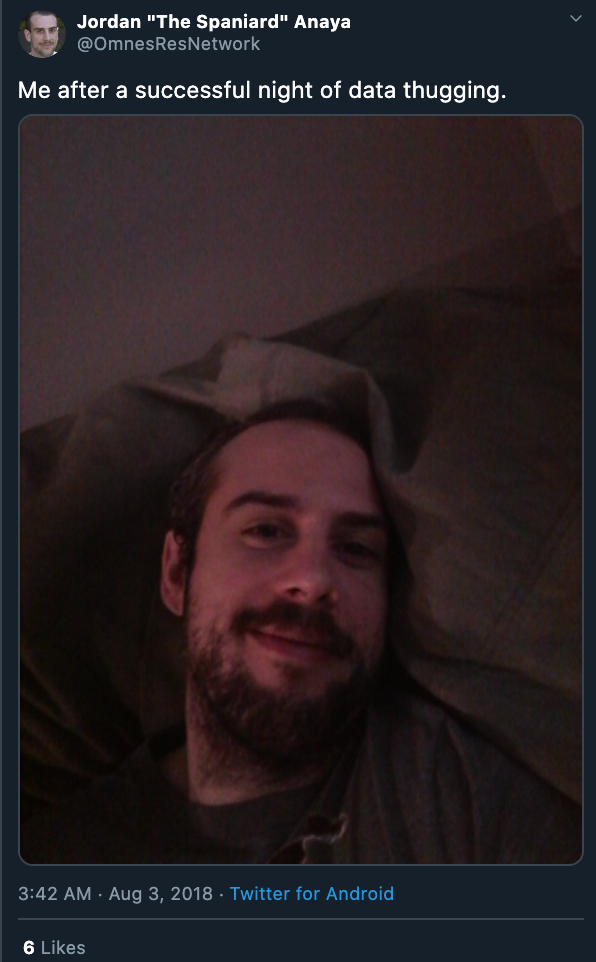
Some of the most vocal discontentment regarding open science relates to the reproducibility "crisis" and the individual researchers who have taken it upon themselves to reveal questionable research practices. Such vigilantes (or communities) are who open science resistors call "data thugs" for their bullying. The smile in this selfie suggests the moral certitude of open science advocates, and it can easily be perceived as the smugness open science resistors despise. I chose this photo because it demonstrates conflict and evokes the importance of values to open science and its success.

This image shows an option in an open science web app to make a research object private. I chose this image because it demonstrates that, in this system, the default option is for content to be public. This default is by design, meant to encourage researchers to behave openly. By attempting to structure choices, the system developers are attempting to change how scientific work is done. My dissertation will examine the ways developers and users interact with an open science system and how their values and schemas change and influence that interaction.
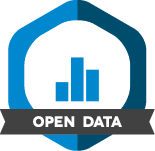
This open data badge from the Center for Open Science (https://osf.io/hr67w/) is one of several badges the organization developed. The Center for Open Science (COS) has successfully lobbied for many journals to offer these badges to authors in recognition for their open science practices; authors upload data or materials with their manuscript and their article is then published with this image next to it. Badges have been demonstrated—in work funded and executed by COS—to be effective at encouraging open behaviors (Kidwell et al., 2016: http://journals.plos.org/plosbiology/article?id=10.1371/journal.pbio.1002456).
[Hacking a cycle-tracking technology]
[...]
[The Tracker Museum]
[...]
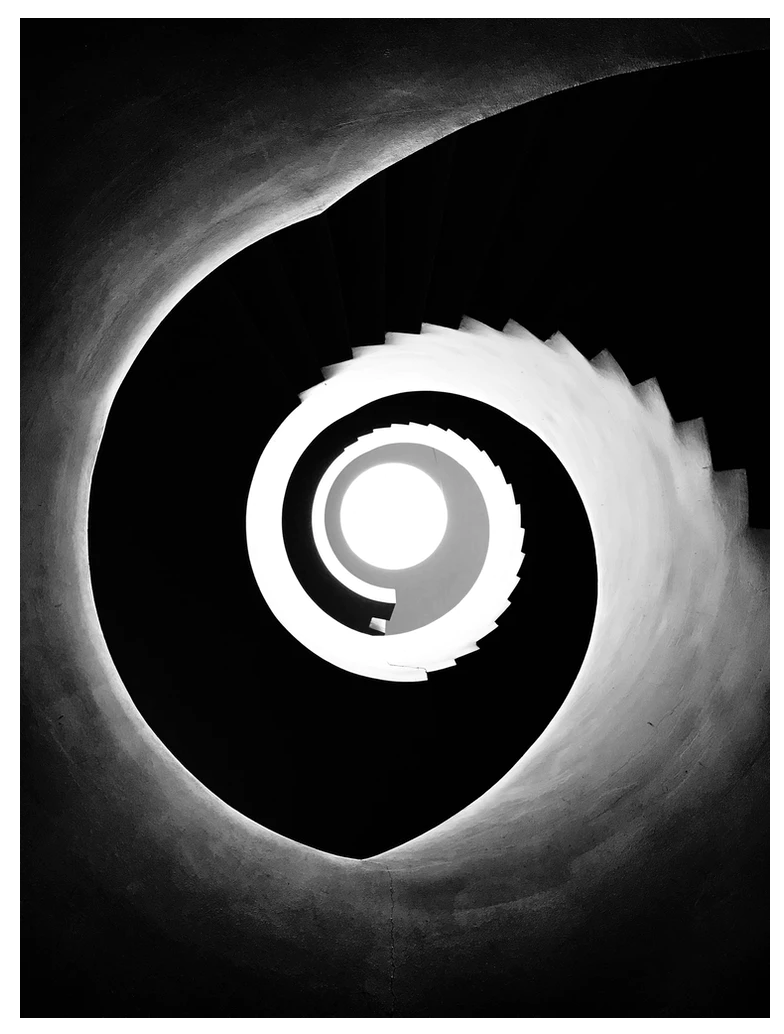
[The Cyclic Self] (picture by Adrien Olichon, free image, via Unsplash)
This abstract picture allows a connection to the theoretical dimension of my dissertation. On the picture, we can see a somewhat irregular spiral. I especially like the fact that it’s irregular, because in my research I analyze the misfits, non-alignments, and discrepancies that emerge between normative expectations regarding the ideal menstruating body and menstrual cycle realities.
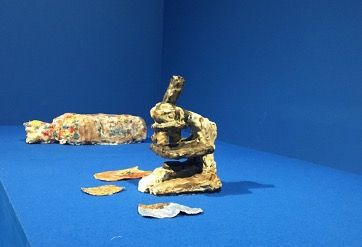
In the first picture we can see a ceramic sculpture by the artist Trisha Baga from her series “Hypothetical Artifacts” (2015–2020). Within the series, everyday objects are rendered as imprecise, messy fossiles. Looking at the object of the microscope this seems especially unsettling. Tools that we know as precise, standardised and to be “revealing the truth” of nature are depicted as handcrafted and wobbly. For me, the shiny glaze, usually reserved for art or craft projects like mugs, points to me to the charisma and “aura” and emotions that surrounds certain technologies. I have chosen the microscope, as this is still something many people think of when they think of law enforcement. The question now is what Trisha Baga might depict when she would be asked to make a sculpture of modern day IT-Forensics, possibly based on machine learning applications.
The picture is rather old and not very sharp, to see their work better I recommend googling “Trisha Baga Hypocritical Artifacts”
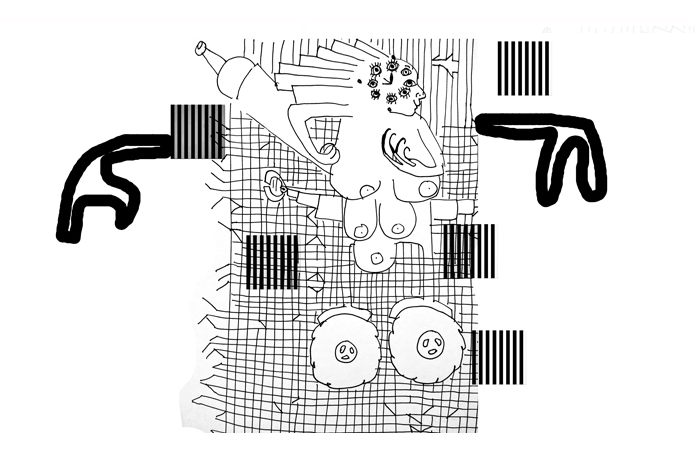
The second picture is a depiction of how the artist Stefanie Wuschitz imagines a feminist & anti-racist AI. I am especially drawn to the loose ends, the patches and angular connections and how unrefined and bulky the “input”-tools look like compared to the fine mesh of the “inner workings”. The AI looks particularly peaceful and happy, yet some of the parts might work well as weapons. The long fingernails give the impression of something organic and human, something that is growing, while their hair looks rather mechanic.
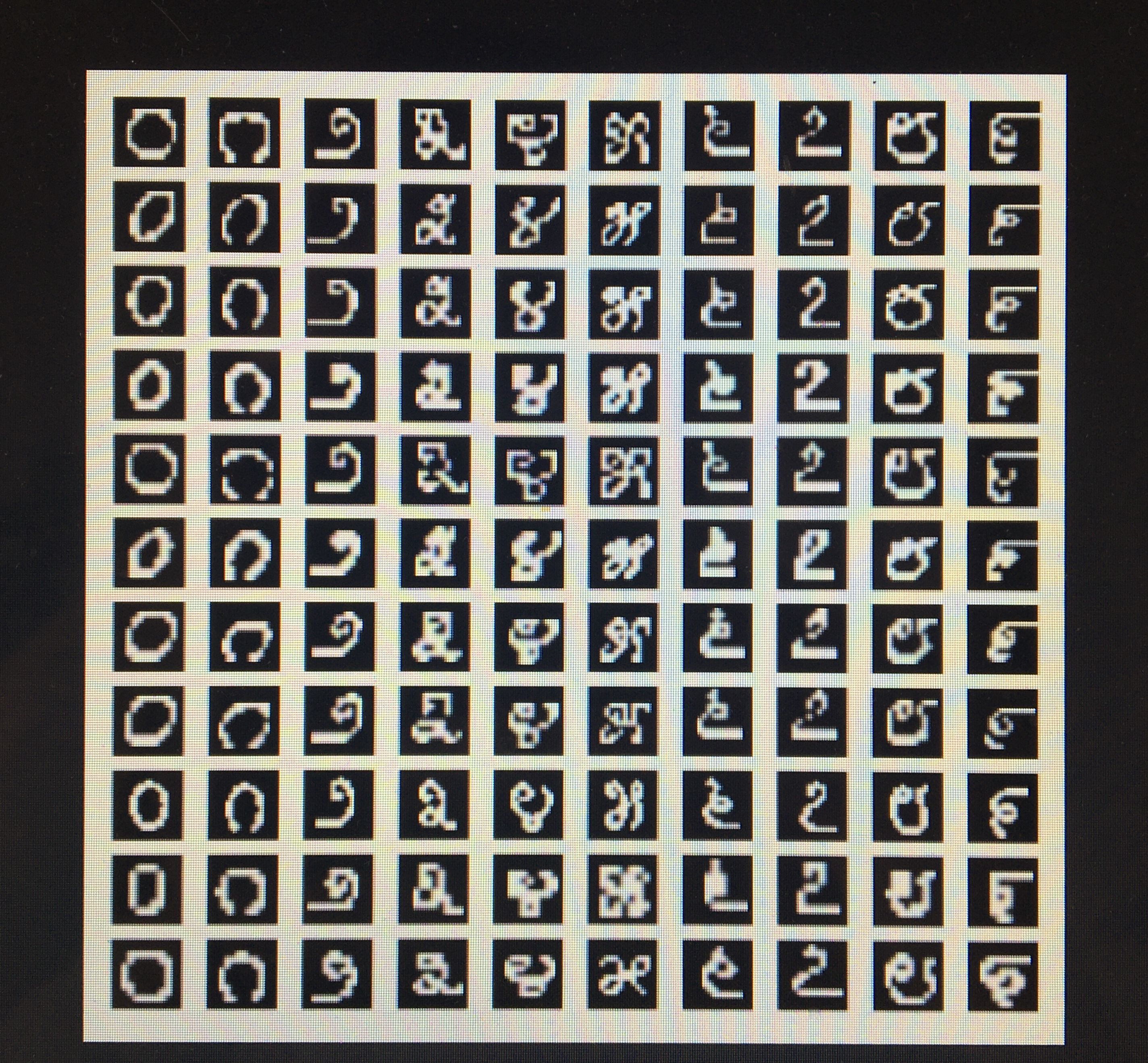
I stumbled upon the last picture when searching for “scarcity + Machine Learning”. It is a nice derivation of the usual ones and zeros, decision trees and cold blue nodes, gearwheels, and light bulbs that are used when depicting ML. It also points to a part that I am really interested in: Skills, embodied and tacit knowledge and gut feelings within both spheres of ML and law enforcement (and/or the scarcity of them). For me, it also depicts what can happen when the two domains meet; processes of negotiating standardization, valuation, and classification of things like gut feelings.

Contemporary office space in a converted sugar factory in Mauritius.
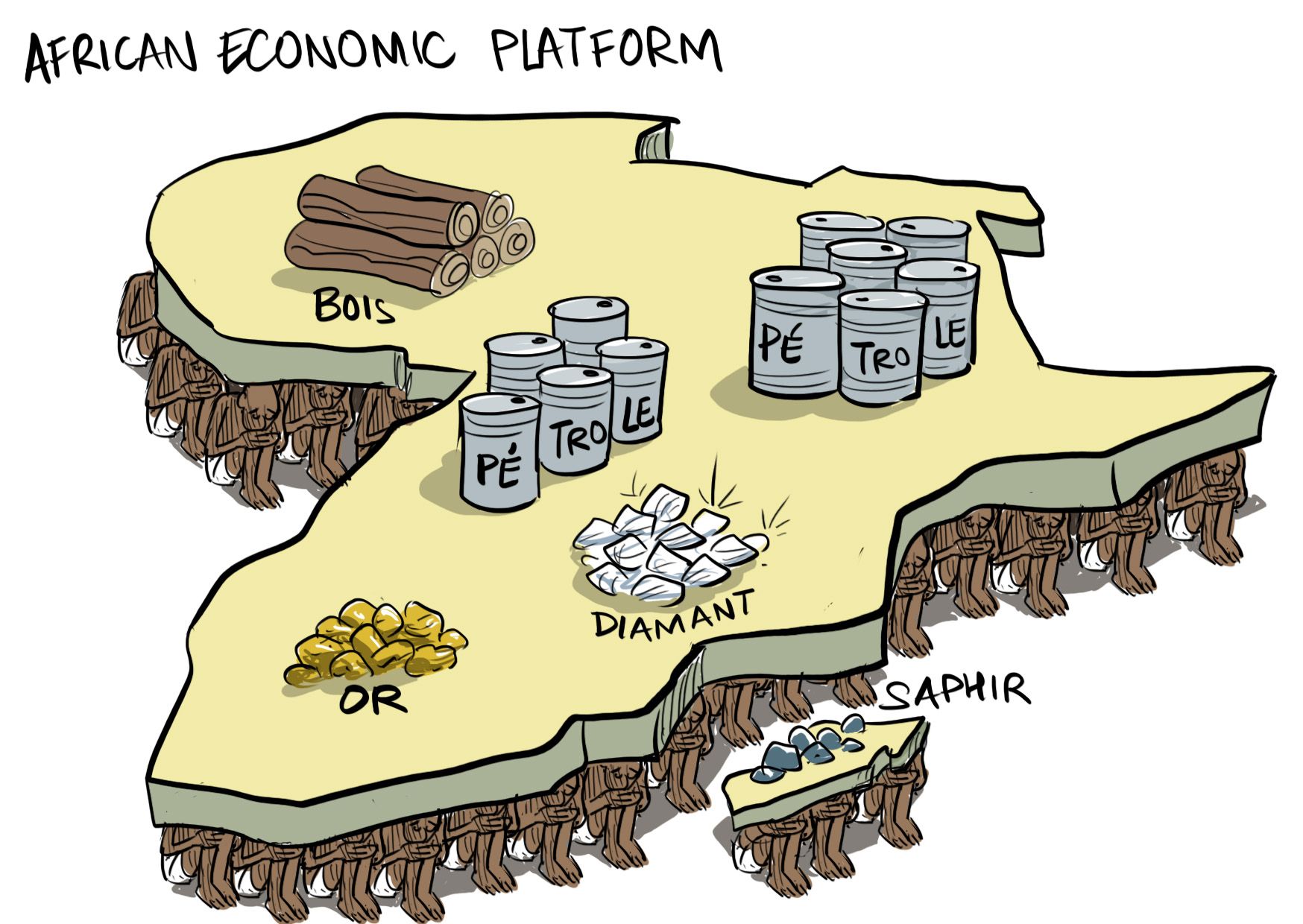
L'Express Mauritius political comic on the forced extraction of wealth and labour from Africa

An electric car in Mauritius with the slogan, "L'Avenir. C'est maintenant. (The Future. It's Now.)"
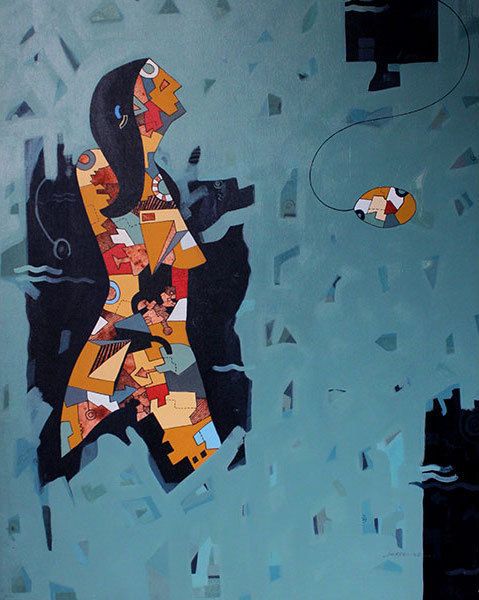
This image and it's colors conveys some of the isolation of teletherapy, but the fullness of the woman's body also conveys the different things that she is trying to think about or address (e.g., piecework, care work, different clients).
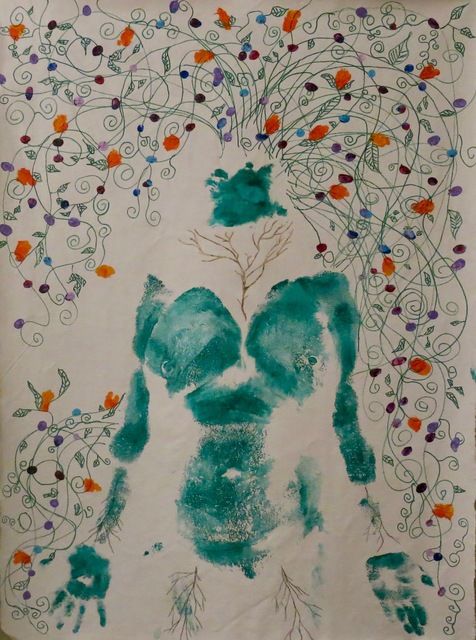
This image I think conveys the sense of the bodily and emotional labor of therapy and the reproductive labor many therapists do on the side. There is a sense of heaviness from the body but a sense of lightness from the flowers flowing from the head which remind me of this idea of "freedom, flexibility and flow" which are in theory what many women are trying to achieve through doing teletherapy platform work.

This is an edited version of an image of a therapist/career coach for teletherapists named Amber Lyda. Her motto is "freedom flexibility flow", and this image I think conveys the highly aspirational, women-entrepreneur image of the teletherapist.
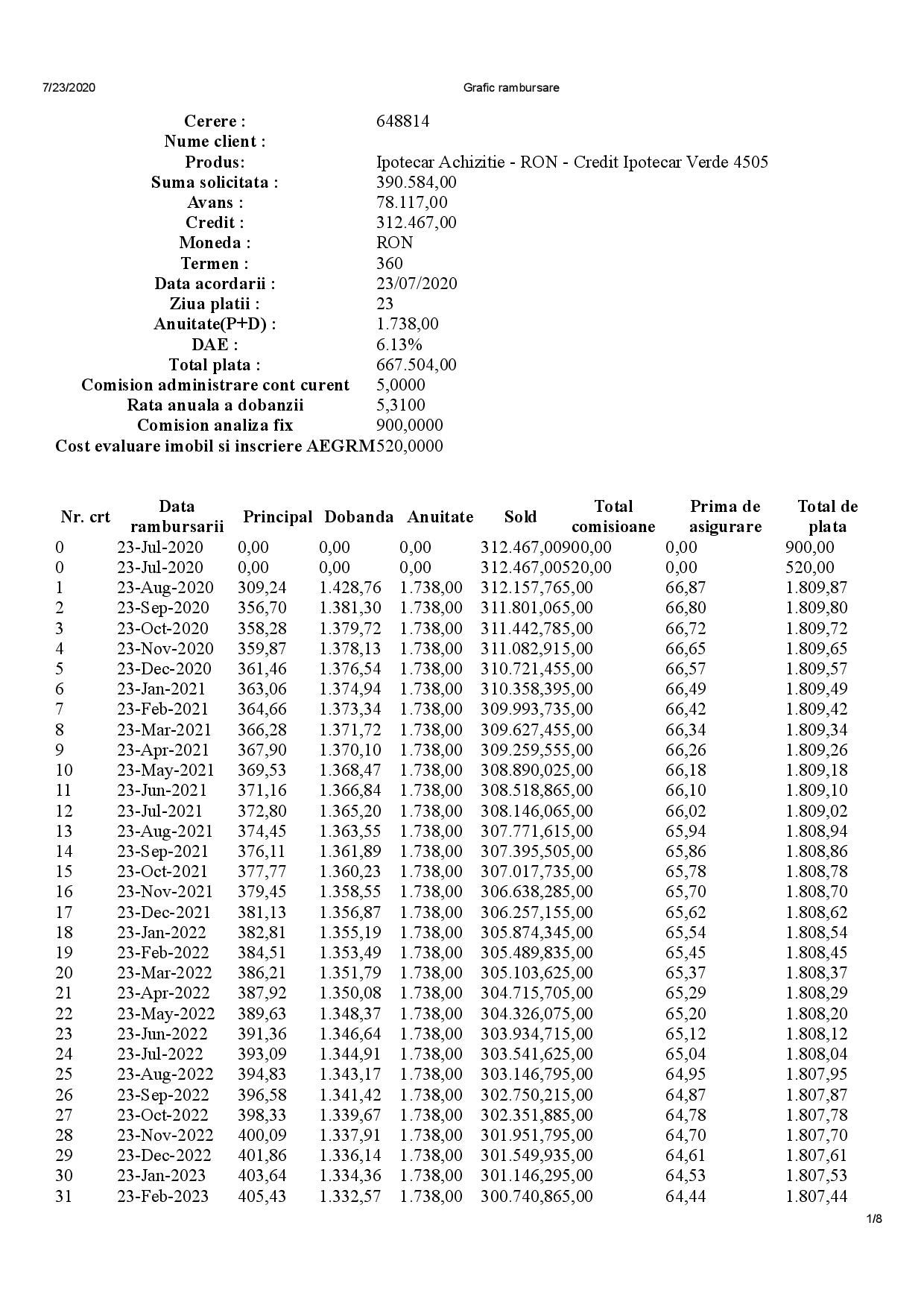
The first page of a mortgage amortization schedule

Ad for mortgage credit. The main text - You, a veteran of packing and unpacking - makes a reference to some of the inconveniences associated with living with rent
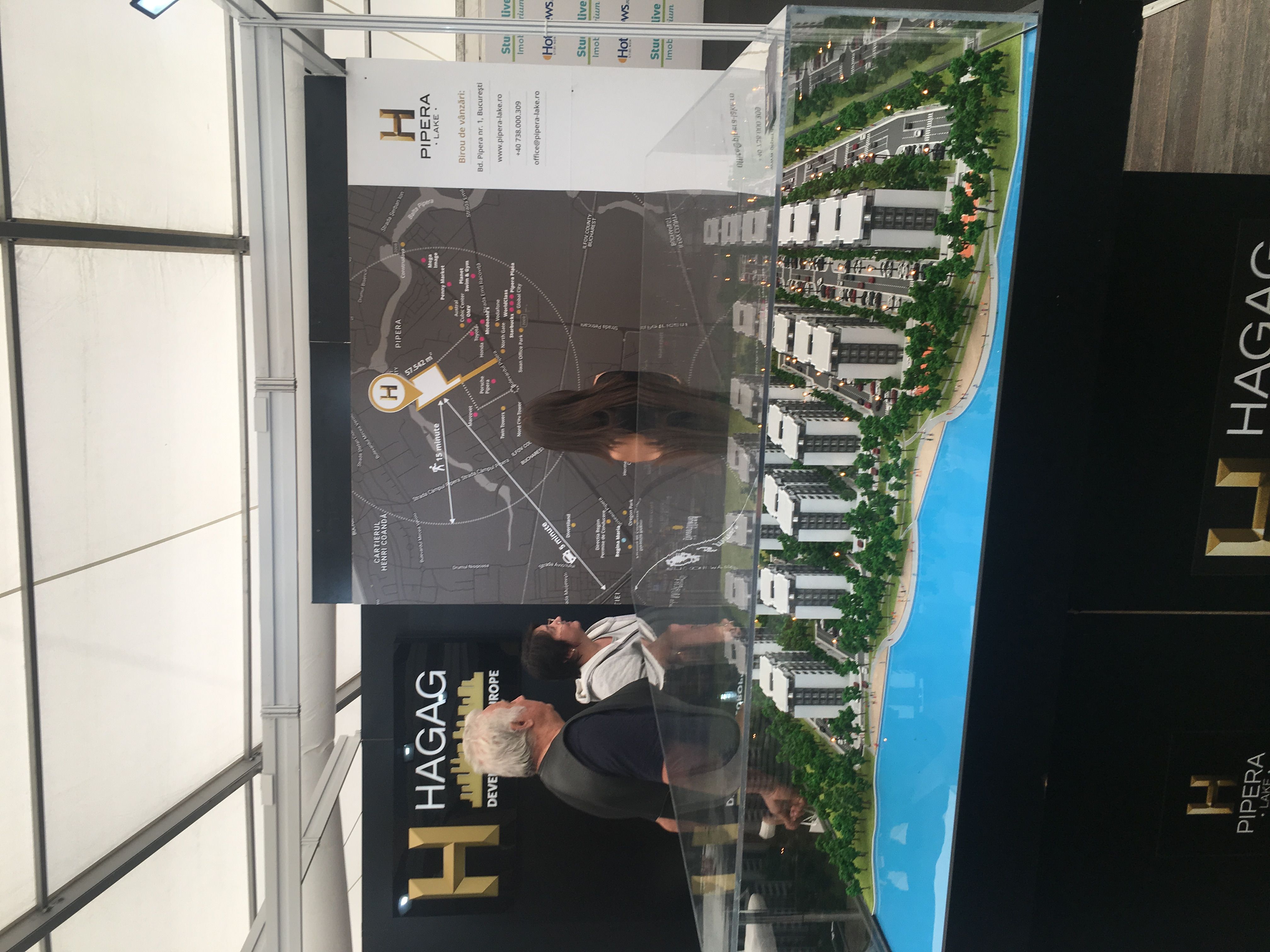
Looking after a new house in a new residential complex in Bucharest, image from a real estate trade show